Microsoft Teams is a great tool for collaboration and communication. Like any communication app, as you connect with more and more people over time, notifications can become overwhelming. Here are some tips and tricks to optimize your Teams notifications for personal use.
Remember that notification settings are different for each Teams account (work, school, and personal). Changes made in one account don’t affect the others.
Turn on quiet hours on your phone
Your phone doesn’t have to be a source of distraction during family time or important meetings. Consider silencing personal notifications while at work and work notifications when off duty. Going on vacation? Set your phone to quiet mode for the entire week. That way, you’ll only see the Teams notifications that matter right then and there on your lock screen. Learn how to set your quiet hours
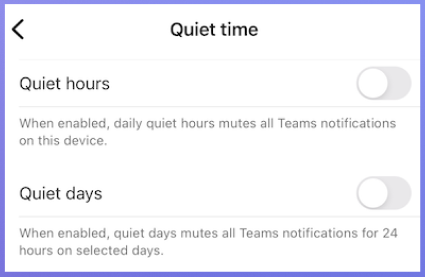
Decide when to mute group chats
Minimizing distractions is key, and muting overly active group chats can help immensely. Don’t worry about missing out; you’ll still see new message indicators to catch up when you’re ready. And if you need a reminder to revisit them, simply mark them as unread.
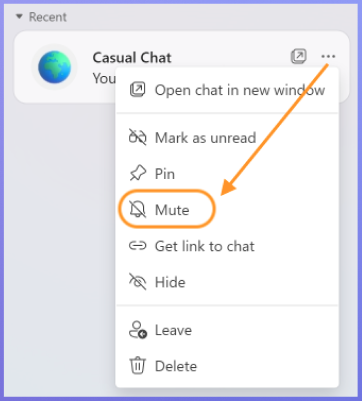
On desktop, open the more options (…) menu and select Mute or Unmute.
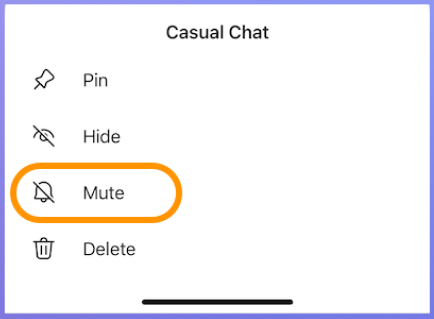
On a mobile device, swipe left on a chat in the chat list to access the additional options menu, where you can choose to mute or unmute the conversation.
Adjust your community notifications to keep up with the latest
In Teams, the default setting alerts users to new community posts. For owners or moderators who wish to stay informed about replies, it’s advisable to adjust the notification setting to “All activity” for comprehensive updates. On the other hand, if you only want to be notified about significant and personally relevant community updates, selecting the “Only new posts” or even “Off” option is recommended. Remember, this setting will synchronize across all your devices.
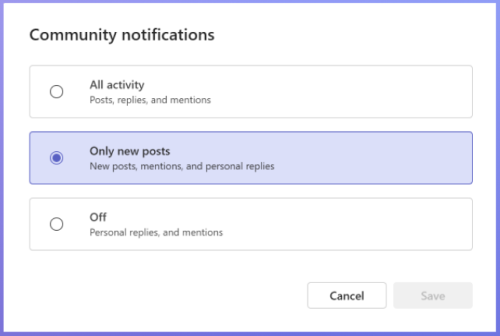
On desktop, open the more options (…) menu and select Notifications. Then select your preferred notification setting for the selected community.
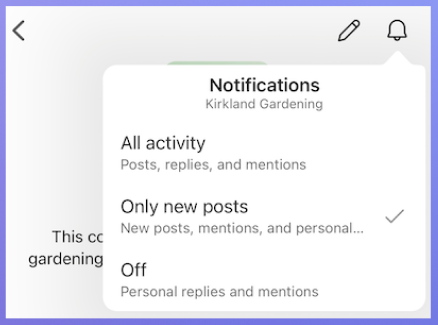
On a mobile device, when in a community, tap the notification icon in the top right corner and select your preferred notification setting for the selected community.
Consider turning off reaction alerts
Reactions offer a quick and effortless way to convey your feelings without typing out a message. However, they might not always merit your focus. For a tidier lock screen, consider disabling reaction notifications. Learn how to change these settings
Change your meeting notifications settings
Our meeting defaults are designed to help you concentrate during meetings and alert you of upcoming meetings. But if you prefer to modify your meeting settings, you can read this support article.
These tips can help you customize your notifications according to your preferences. You can also reach out to me directly on LinkedIn if you have any notification requirements.
– Stephanie Shoo (Product Manager II at Microsoft)
You share, we listen.
We are always grateful to receive your feedback and suggestions to make Teams better.
- Report bugs and glitches by sending us relevant feedback using the in-app form. Please include diagnostic logs and screenshots to help us to investigate your issue. Learn more how to send feedback or suggest a feature in Teams (free)
- If you have suggestions for new features or changes to the existing ones, you can vote and submit ideas on Microsoft Teams (free) Feedback Portal.
- You can always create a post on the Microsoft Support Community as well.


